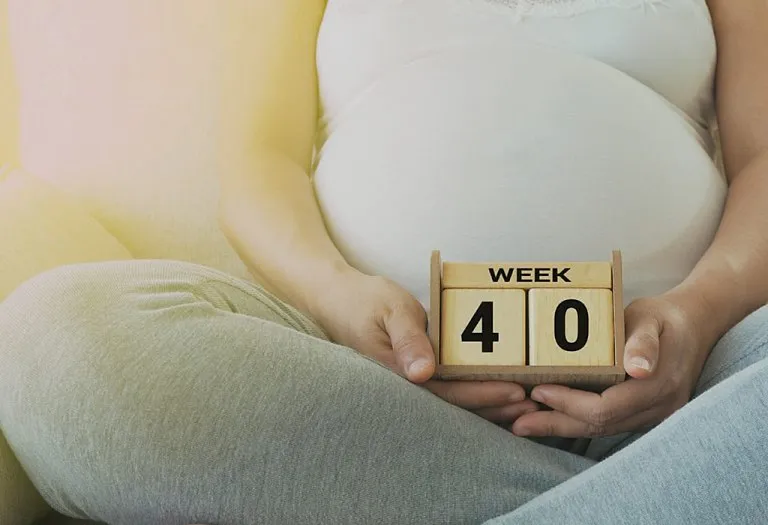Use of Sleeping Pills During Pregnancy – Is It Safe?

Most women have trouble sleeping at some point in their pregnancy, especially in the third trimester. Insomnia, or the inability to fall asleep, is a common problem, and if left untreated for long, chronic insomnia during pregnancy may cause depression in to-be mothers. It may tempt you to reach for the over-the-counter drug, but it may not be safe for your developing baby. The use of sleeping pills during pregnancy is a topic of significant concern and discussion among expectant mothers and doctors. Ideally, all drugs should be avoided during pregnancy, but then some medications might help you sleep better, but they should be taken only after consulting a doctor. Read on to learn more about the benefits and drawbacks of sleep aids during pregnancy.
Types of Sleeping Pills
There are many types of sleeping pills available in the market but there are few of them that have addictive properties (2):
| Sleep Medication | Helps you fall asleep | Helps you stay asleep | Can lead to dependence |
| Doxepin (Silenor) | Yes | ||
| Estazolam | Yes | Yes | Yes |
| Eszopiclone (Lunesta) | Yes | Yes | Yes |
| Ramelteon (Rozerem) | Yes | ||
| Temazepam (Restoril) | Yes | Yes | Yes |
| Triazolam (Halcion) | Yes | Yes | |
| Zaleplon (Sonata) | Yes | Yes | |
| Zolpidem (Ambien, Edluar, Intermezzo, Zolpimist) | Yes | Yes | |
| Zolpidem extended-release (Ambien CR) | Yes | Yes | Yes |
This table represents the medications that might help you fall asleep, help you stay asleep, and are addictive. Some people can sleep, but they have a problem staying asleep because they get up regularly and are ultimately sleep-deprived. So choosing the one that is best for you is a little tough, so it is always better to take the suggestion from a doctor.
Factors Affecting Sleep in Pregnant Women
There are many factors that affect sleep patterns in pregnant women. These factors, when identified early, can be easily managed, empowering you to take control of your sleep. The main factors are:
- Anxiety
- Congested feelings
- Alcohol usage
- Uncomfortable position
- Drinking excess water before sleep
- Uncomfortable nightwear
Is it Safe to Take Sleeping Pills During Pregnancy?
Sleeping pills are not recommended for longer durational use for anyone. But if a pregnant woman is suffering from insomnia, then antihistamines, diphenhydramine and doxylamine are considered to be safe (6). These drugs are found in Benadryl and can induce sleep.
Risks and Side Effects of Taking Sleeping Pills When Pregnant
Sleeping pills and pregnancy do not go well hand in hand. That is the reason why sleeping medication for pregnancy recommended by doctors is very rare and under extreme conditions only. Side effects of sleeping pills during pregnancy can include drowsiness, dizziness, gastrointestinal issues, and potential impacts on fetal development, raising concerns about their overall safety and necessity during this crucial time. Links have been found between the use of barbiturates, benzodiazepines, and other prescription sleeping pills and birth defects, so prolonged use of sleep aids for pregnant women is generally not recommended by doctors (1).
Home Remedies for Better Sleep
There is a list of home remedies for better sleep, and it has health benefits too for you as well as the foetus:
- Sleep in a Spacious Bedroom: Make sure your bedroom is spacious and airy. Do not turn on the air conditioners for a longer duration. Instead, use electric fans to make the room airier, as foetuses develop faster in fresh air.
- Wear Comfortable Nightwear: Pregnant women should wear loose and comfortable nightwear primarily made out of cotton so that it absorbs sweat and is airy. Tight or congested clothes at night can disturb you in your sleep and thus disturb your sleep pattern, leading to insomnia.
- Take a Bath Before Sleeping: It is generally suggested that you take a bath in 35-to-38°C water or soak your legs in warm water before sleeping. This helps lower stress, relax the muscles, and have a nice psychological effect before sleep.
- Avoid Drinking Alcohol: Drinking alcohol stimulates the nervous system and keeps it in an excited state, which is not good for sound sleep. Moreover, like any other fluids, if you consume alcohol in large quantities, then it will fill your bladder, and you will have to get up for nocturia, which is not so good for your sleep. Alcohol is not recommended during pregnancy and, hence, should be avoided completely (3).
- Avoid High-Intensity Workouts Before Sleep: High-intensity exercise should be avoided during pregnancy as it draws out energy from the body, but it should be avoided mostly before sleep. Just a relaxing stroll is enough for the need to exercise before bedtime (4).
- Drink Milk Before You Go to Bed: Drink a glass of warm milk 30 minutes before bed. Milk’s nutrients are good for pregnant women and their foetuses (5).
- Massage Gently: Moderately massaging a pregnant woman relieves muscle stress and helps her relax. Moreover, it has also been found to relieve mental stress and encourage sleep (7).
- Think Positive: While sleeping, try to think about positive things. This will help you stay calm and positive during pregnancy and help you relax. It will also relax your nerves and promote faster sleep in pregnant mothers.
- Try Different Sleeping Positions: Some doctors say that sleeping one-sided helps reduce pressure on the fetus and the mother, but it is the prerogative of the concerned woman to choose her most comfortable position to get better sleep.
Drugs Prescribed By Doctors
There are categories of drugs according to their country’s pharmacopoeia, but they are segregated into 4 or 5 groups so that their efficacy and safety can be measured. Unfortunately, prescription sleeping pills are not kept in a safe zone. Prescription sleeping pills are addictive and dangerous and should be taken under complete medical supervision.
FAQs
1. Do sleeping tablets affect breastfeeding?
Many sleeping pills can pass into breast milk, potentially affecting the nursing infant. It’s vital to discuss any medication use with a healthcare provider while breastfeeding (8).
2. What should I do if I have a history of insomnia before pregnancy?
If you had insomnia before becoming pregnant, discuss your history with your doctor. They can recommend safe strategies tailored to your needs during pregnancy.
Prolonged insomnia can lead to mental instability. But if you take a little care at the onset of insomnia, then there are several methods where you can reverse the effects and lead a healthy life. Sleeping pills while pregnant can pose risks to both the mother and the developing fetus, making it essential to approach their use with caution and under the guidance of a healthcare provider.
References/Resources:
1. Pacheco. D, Nambisan. M; Sleep Aids to Take While Pregnant; Sleep Foundation; https://www.sleepfoundation.org/pregnancy/pregnancy-sleep-aid
2. Treatment of Insomnia During Pregnancy; MGH Center for Women’s Mental Health; https://womensmentalhealth.org/posts/treatment-of-insomnia-during-pregnancy/
3. How can I get more sleep in pregnancy?; Tommy’s; https://www.tommys.org/pregnancy-information/im-pregnant/ask-a-midwife/how-can-i-get-more-sleep-pregnancy
4. Insomnia; NHS; https://www.nhs.uk/conditions/insomnia/
5. Natural Sleep Aids: Home Remedies to Help You Sleep; The Johns Hopkins Medicine;
https://www.hopkinsmedicine.org/health/wellness-and-prevention/natural-sleep-aids-home-remedies-to-help-you-sleep
6. Antihistamines; NHS; https://www.nhs.uk/conditions/antihistamines/#
7. Reichner. C. A; Insomnia and sleep deficiency in pregnancy; PubMed Central; https://www.ncbi.nlm.nih.gov/pmc/articles/PMC4935047/
8. Insomnia in Pregnancy and Breastfeeding; NSW Medications in Pregnancy and Breastfeeding Service; https://www.seslhd.health.nsw.gov.au/sites/default/files/groups/Royal_Hospital_for_Women/Mothersafe/documents/InsomniaApril2018.pdf
Also read:
Effects Of Pregnancy On Your Sleep
Sleeping Problems during Pregnancy
What Medicines to Avoid when Pregnant
List of Medications To Take & Avoid while Pregnant
Was This Article Helpful?
Parenting is a huge responsibility, for you as a caregiver, but also for us as a parenting content platform. We understand that and take our responsibility of creating credible content seriously. FirstCry Parenting articles are written and published only after extensive research using factually sound references to deliver quality content that is accurate, validated by experts, and completely reliable. To understand how we go about creating content that is credible, read our editorial policy here.




































